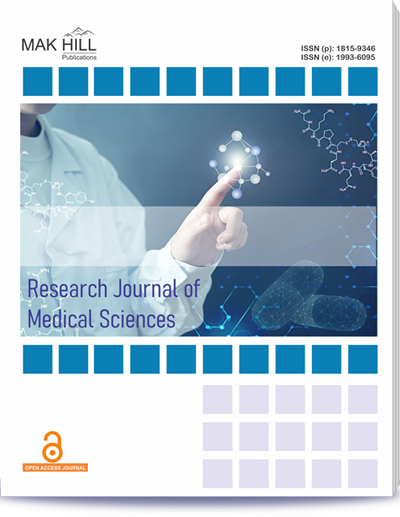
Research Journal of Medical Sciences
ISSN: Online 1993-6095ISSN: Print 1815-9346
Abstract
Early diagnosis and appropriate therapy of sepsis is a daily challenge in intensive care units (ICUs) despite the advances in critical care medicine. Procalcitonin (PCT); an innovative laboratory marker, has been recently proven valuable worldwide in this regard. This study was undertaken to evaluate the utility of PCT in a resource constrained country like ours when compared to the traditional inflammatory markers like C - reactive protein (CRP) to introduce PCT as a routine biochemical tool in regional hospitals. It was a comparative study. This study was conducted one year. At the department of General Medicine at Murshidabad Medical College.73 patients were included in this study. The clinical presentation of 75% cases revealed a range of systemic inflammatory responses (SIRS). The diagnostic accuracy of PCT was higher (75%) with greater specificity (72%), sensitivity (76%), positive and negative predictive values (89% and 50%), positive likelihood ratio (2.75) as well as the smaller negative likelihood ratio (0.33). Both serum PCT and CRP values in cases with sepsis, severe sepsis and septic shock were significantly higher from that of the cases with SIRS and no SIRS (p<0.01). PCT is reported to be more accurate than CRP in identifying and assessing the severity of sepsis, despite the fact that both markers cannot differentiate between infectious and noninfectious clinical syndromes.
How to cite this article:
Partha Pratim Dey. Prognostic Significance of Procalcitonin and C-reactive Protein: Usefulness as Biomarker of Sepsis in ICU Patient.
DOI: https://doi.org/10.36478/10.59218/makrjms.2024.8.18.712.716
URL: https://www.makhillpublications.co/view-article/1815-9346/10.59218/makrjms.2024.8.18.712.716